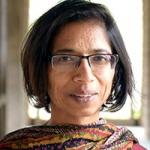Renewable Energy and Its Regional Consequences

Cooperative federalism is a governance mantra in India these days. Between GST, Aadhar, demonetization, Swacch Bharat and more, the assertiveness of the Central government in prescribing wide-ranging technocratic policy solutions is at an all-time high. And for good reason—some of these interventions may have long-term benefits, even if they are painful in the short-term. But these benefits are rarely uniform across regions, and the long-term distributional and spatial consequences of these policies are often not well understood.








